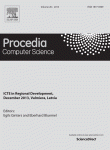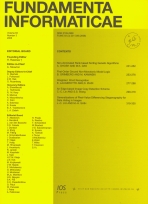Decision Modeling
Weights or weighted parameters/attributes are part of the most measurement, indexing and/or classification techniques. However, when judgments are subjective, weight assignment and weights properties such as consistency, completeness or accuracy are almost always disputable. A ranking or preference is usually defined as a weakly ordered relationship between a set of items such that, for any two items, the first is either “less preferred,” “more preferred” or “indifferent” to the second one. Weights and ranking are dual concepts, and usually, one can be derived from another. A consistent subjective ranking is problematic and assigning numerical importance is even more problematic.
There are several techniques used to decision modeling. One of them is the pairwise comparisons method. The method, which is based on the observation that it is much easier to judge the mutual relationship (preference, importance, intensity, etc.) of two objects than to do this for several objects. This very old idea goes back to Ramon Llull at the end of XIII century. It was made popular by an influential paper of Marquis de Condorcet (1785), where he used this method in the election process where voters rank candidates based on their preference. Modern version follows from Thurstone and Saaty, and it is one of many methods used in multicriteria decision making and analysis. The pairwise comparisons method is especially useful when the notions of interest are intangible. How to determine someone’s taste or beauty? Using pairwise comparisons may bring the answer.
There are also other methods used to decision modeling. Some of them are expert methods while others represent purely computational approaches. Examples of the latter category are machine learning, neural networks, decision trees, decision tables, temporal logic, fuzzy computations, rough sets and many more. In this approaches the input data are processed and assessed by the algorithms so that at the output it is clear what alternative (or alternatives) is the most preferred. Thanks to eliminating human factor these methods can handle larger sets of data, however, on the other hand, processing intangible concepts are much more difficult and demanding.


